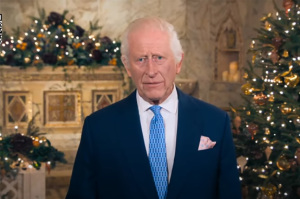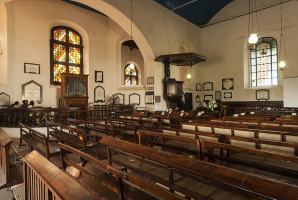Report: Religious Freedom in Iraq Marred by Violence
WASHINGTON – The Iraqi government's ability to protect religious freedoms in the conflict-stricken country is handicapped by insurgency, terrorism, and sectarian violence, according to the U.S. State Department.
"[F]requent sectarian violence, including attacks on religious places of worship, hampered the ability to practice religion freely," stated the annual International Religious Freedom Report released Friday by Secretary of State Condoleezza Rice.
"Christians also reported that Islamic extremists warned Christians living in Baghdad's Dora district to convert, leave, or be killed," it further noted.
While Rice did not specifically address the situation in Iraq in her remarks, she said the report, which covers 198 countries, would help in advancing President Bush's efforts to promote freedom and peace worldwide.
"Religious liberty is deeply rooted in our principles and history as a nation, and it is our belief in this universal human right that leads us into the world to support all who want to secure this right in this lives and in their countries," Rice said.
"Freedom of religion is also integral to our efforts to combat the ideology of hatred and religious intolerance that fuels global terrorism," she added. "This past Tuesday was the sixth anniversary of the September 11th attacks. As we reflect on the tragedy of that day, we are reminded of the true importance of this report and we reaffirm our commitment to help us shed light on all countries where citizens are subjected to government censorship, hate crimes, discrimination and violence for their thoughts and beliefs."
Regarding Iraq, the 2007 report noted that current estimates place the number of Christians living in Iraq at fewer than 1 million – down from the 1.4 million reported in the official 1987 census.
In August 2006, Chaldean Auxiliary Bishop Andreos Abouna of Baghdad stated that of the estimated 1.2 million Christians living in the country before the 2003 U.S.-lead offensive, only 600,000 remained. According to church leaders, an estimated 30 percent of the country's Christian population lives in the north, with the largest Christian communities located in Mosul, Erbil, Dohuk, and Kirkuk.
The report also noted that the Iraqi government focused most of its resources and attention on the ongoing insurgency and reconstruction efforts during the reporting period.
"[T]hus, it did not have the capacity to address matters relating to abuses of freedom of religion," the reported claimed. "Moreover, deficiencies in security force capabilities and in the rule of law made it difficult for the Iraqi Security Forces (ISF) or the justice system to investigate or address alleged violations."
In July, during hearing before the U.S. Commission on International Religious Freedom, the Rev. Canon Andrew White, vicar of the 1,300-membered St. George's Anglican Church in Baghdad, had lamented over the government's failure to support the country's most vulnerable communities.
"Violence against all Christians are increasing all the time," emphasized White.
He explained the aggression against Christians resulted from the fact that they are not Muslim, are considered to belong to a Western religion, and are seen as being close to or even part of the Coalition.
"So far no government has helped," White continued. "No government has understood their needs. There has been a fundamental lack of understanding of the immediate nature of the conflict that we are now facing."
USCIRF, a bipartisan government task force responsible for monitoring religious freedom in the world, earlier this month urged the U.S. government to address the serious threats to Iraq's religious minorities.
"While all Iraqis are threatened by violence, the non-Muslim minorities face particularized forms of harassment and abuse; what is more, these groups appear to suffer a degree of violent attacks and other human rights abuses disproportionate to their numbers," USCIRF wrote in a letter to Rice.
The Sept. 5 letter specifically mentioned Chaldo-Assyrian Christians as one of the ancient communities facing intense persecution and possible "extinction" in Iraq. Assyrian Christians draw their lineage back to Babylonian times and are one of the oldest Christian communities in the world.
"The situation for the non-Muslim minority communities in Iraq has gone beyond critical," emphasized the federal government agency.
"Clearly, given the U.S. government's role in the developments that have resulted in the dire situation currently facing the imperiled members of Iraq's religious minority communities, our country has a special obligation to provide them protection and thereby attempt to secure their existence in Iraq."
In her remarks Friday, Rice said "the United States will continue working to promote religious freedom, to nurture tolerance and to build a more peaceful world for people of all faiths." This, she said, would be done through "our bilateral relationships, our work in international forums, and our many ongoing discussions on this issue with people across the globe."
Outside of Iraq, the annual report also noted severe problems with religious freedom in a number of other Islamic or majority-Muslim nations, including Afghanistan, Pakistan and Saudi Arabia.
Christian Post reporter Michelle Vu contributed to this report.





























